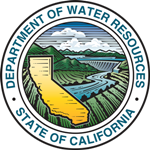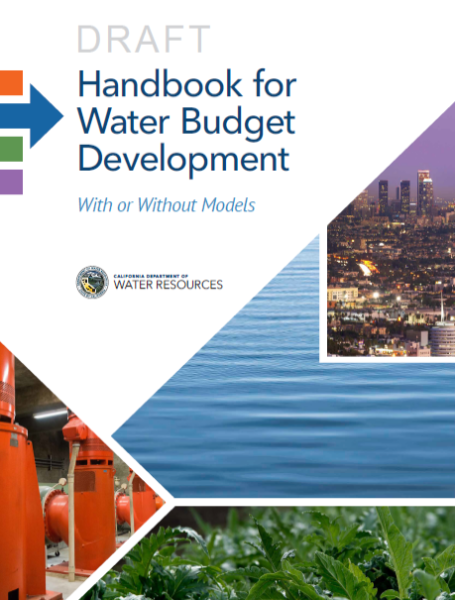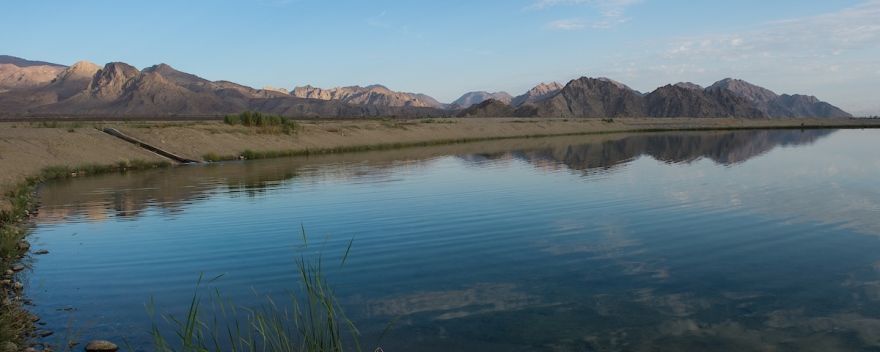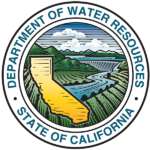 NEW Draft Basin Prioritization for Modified Basins Meeting Video Available
NEW Draft Basin Prioritization for Modified Basins Meeting Video Available
The recorded video of the Draft Basin Prioritization for Modified Basins Meeting held on May 13, 2019, and the PowerPoint presentation are now available online. The public comment period for 2019 Basin Prioritization Phase 2 remains open through May 30, 2019.
For questions, email sgmps@water.ca.gov.
NEW GSAs May Need to Update Posted Notifications
Many existing groundwater sustainability agencies (GSAs) need to modify posted notifications to align with new 2018 basin boundaries, reflect new basin names, or clarify groundwater management intent.
If your GSA has been affected by a basin boundary or basin name change you should update that information on the SGMA Portal. The Department of Water Resources (DWR) encourages GSAs to clearly define exclusive groundwater management boundaries on the SGMA Portal before adopting and submitting a groundwater sustainability plan (GSP) to certify that a basin has complete GSA coverage. A GSP Initial Notification may also need to be revised or re-submitted. To modify existing GSA information, an authorized user must log into the GSA Formation Notification System and follow the instructions on page 7 of this document.
DWR has updated its GSA Frequently Asked Questions and GSA Formation Notification Guidelines documents to help local agencies and GSAs make informed decisions when establishing or reorganizing basin-wide governance.
For more information, visit DWR’s Groundwater Management webpage.
For questions, please email sgmps@water.ca.gov.
NEW C2VSimFG BETA2 Released
The Beta 2.0 version of the Fine Grid California Central Valley Groundwater-Surface Water Simulation Model (C2VSimFG BETA2) is now available to assist GSAs during the development and implementation of GSPs. C2VSimFG BETA2 is a computer program that simulates water movement through the linked land surface, groundwater, and surface water flow systems in California’s Central Valley using the DWR-developed software, Integrated Water Flow Model Version 2015 (IWFM-2015). The new version is an update to the model released in May 2018. DWR spent the last year actively updating the newest model to incorporate additional data, feedback, and understanding of the complex hydrology, hydrogeology, and operations in California’s Central Valley. The C2VSimFG BETA2 includes updates to inflows, diversions, evapotranspiration, precipitation, land use, root zone parameters, urban per capita water use, and select aquifer parameters.
NEW Public Comment Period Opens for SGM Grant Program
DWR opened the 45-day public comment period for the Draft Proposition 68 2019 Sustainable Groundwater Management Grant Program Guidelines and the Planning – Round 3 Proposal Solicitation Package (PSP) to make approximately $47 million available for competitive grants.
The public comment period began on May 3, 2019, and will close at 5 p.m., on June 17, 2019. DWR will release the final guidelines and solicit proposals following the review of public comments.
For more information on this solicitation and to view the full program schedule, click here. Email comments to SGWP@water.ca.gov.
NEW DWR Updates SGMA Data Viewer with Subsidence Information
DWR has updated the Sustainable Groundwater Management Program’s SGMA Data Viewer to include updated subsidence information to help GSAs, water managers and others implement the Sustainable Groundwater Management Act (SGMA).
DWR is providing these standardized, statewide datasets to assist GSAs in the creation and ongoing development and implementation of GSPs. The new information is available on the SGMA Data Viewer mapping application under the land subsidence heading. It includes historical subsidence information from 1949 to 2005, and updated satellite based remote sensing InSAR subsidence data from January 2015 to June 2018. InSAR is a technique for mapping ground deformation using radar images of the Earth’s surface that are collected from orbiting satellites.
DWR has also created an online tutorial on how to use the SGMA Data Viewer and view the new information. For additional SGMA related data and tools, visit DWR’s Groundwater Data and Tools webpage and the California Natural Resources Open Data Platform.
For questions, email sgmps.water.ca.gov.
REMINDER Take a Survey to Help Plan the Next GSA Forum
DWR hosted a GSA Forum in March 2019 which brought together water planners and stakeholders from across the state to share experiences and strategies as they implement the SGMA. Based on the level of interest and comments received from attendees, the forum was a beneficial venue for building networks and sharing strategies associated with SGMA implementation. DWR plans to host additional GSA Forums to further communication among SGMA water managers and stakeholders. Please complete the survey so we can use your input to help plan and improve the next GSA Forum.
REMINDER: IRWM Implementation Grants Proposal Solicitation Package Available
DWR released the final Guidelines and Proposal Solicitation Package (PSP) for the Integrated Regional Water Management (IRWM) Implementation Grant Program, which provides funding for projects that help meet the long-term water needs of the state and incorporate integrated regional strategies. Approximately $222.3 million in Proposition 1 grant funding is available for IRWM implementation projects, with $23.6 million designated for projects that provide support to Disadvantaged Communities. GSAs and SGMA stakeholders interested in IRWM Implementation funding should coordinate with their respective IRWM Region.
REMINDER DWR’s Guidance Documents Can Help with SGMA Communication and Engagement
SGMA requires GSAs to consider all beneficial uses and users when preparing GSPs. DWR has documents that provide clarification, guidance, and examples to help GSAs develop the essential communication and engagement elements of a GSP. These useful publications can be found on the Assistance and Engagement Webpage.
Guidance documents include: Stakeholder Communication and Engagement, Engagement with Tribal Governments, Stakeholder Engagement Requirements by Phase, and Communication and Engagement Plan Outline.
REMINDER Submit Your GSP Initial Notification
Before initiating development of a GSP, GSAs are required to notify DWR in writing. GSAs must submit all applicable GSP initial notification information to DWR using the SGMA Portal – GSP Initial Notification System. The SGMA Portal – GSP Initial Notification System also allows edits to be made to a previously submitted Initial Notification, including the ability to withdraw a submittal.
For more information, please see Frequently Asked Questions on GSP Initial Notification Requirements or contact the Regional Coordinators in DWR’s four Regional Offices.
For assistance with the system, please email monica.reis@water.ca.gov.
Connect with Your Basin Point of Contact
DWR has designated Basin Points of Contact to assist local agencies and GSAs as GSPs are developed and implemented and to assist with applications for Technical Support Services and Facilitation Support Services.
For regional inquiries, please contact sgmp_rc@water.ca.gov.
For general inquiries, please contact sgmps@water.ca.gov.
 The Groundwater Sustainability Plan (GSP) Annual Report module is available on the Department of Water Resources’ SGMA Portal. Groundwater sustainability agencies (GSAs) with adopted GSPs can upload their annual reports, which are due April 1, 2020. Downloadable templates for basinwide data are available on the GSP Reporting System webpage and must be submitted with the GSP Annual Report. Additional resources are also available:
The Groundwater Sustainability Plan (GSP) Annual Report module is available on the Department of Water Resources’ SGMA Portal. Groundwater sustainability agencies (GSAs) with adopted GSPs can upload their annual reports, which are due April 1, 2020. Downloadable templates for basinwide data are available on the GSP Reporting System webpage and must be submitted with the GSP Annual Report. Additional resources are also available:






